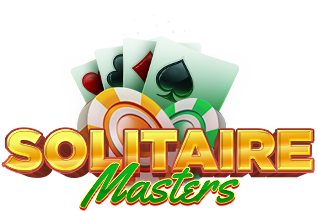Card games are popular across the globe, and they tend to involve the sketchy exchange of cash. However, one variation of card games does exist that is not only fit for children but also helps with their mental development. And the name of that fun card game is Go Fish.
Origin Story of Go Fish
The history of how Go Fish was created is shrouded in controversy. It is commonly said that this card game originated back in 1984 when an eight-year-old boy from New York came up with it. Despite this, others say that the Chinese invented Go Fish long before 1984 and have been enjoying their own version of the game for hundreds of years. Over time the rules of such a game evolved to produce today's standards of Go Fish, yet every country still seems to have their own custom way of playing it.
Here's How to Play Go Fish
When playing Go Fish, one is to collect four cards that are of the same kind (joker, for instance) so that they can be grouped together in a pile and kept aside. The pile formed is called a 'book', and the goal of Go Fish is that players need to form as many of such books as they can because the one with the most books will be declared the winner. As a rule, Go Fish can be played with two or more competitors, and a typical fifty-two card deck can be used. When there are only two participants in the game, each player will be dealt seven cards. If there are three players, then each will get six cards, and if there are four players, then each will receive five cards. After the cards have been dealt accordingly, the rest of the deck is piled up randomly at the center to be used as the 'fish pool'. The game begins with a random participant going first. This participant will choose a player from whom s/he will ask for a certain rank of card (sevens, for example). To be able to ask for a specific card rank, that person himself/herself must hold at least one card of that same rank. So, if player 1 has a seven, s/he can ask player 2 for sevens. If player 2 does happen to have sevens, then s/he must give all of them up to player 1. As player 1 was able to find the card rank s/he was looking for, s/he will be allowed to pick another player and ask for a card again. If player 2 didn't happen to have the desired card, then player 2 will simply say 'go fish'. This means that player 1 will now have to pick a card at random from the fish pool in the middle of the table. By chance, if player 1 gets the card that s/he asked for, s/he will show it to the other players and then get another turn to ask around for card ranks. Also, if that card contributes to player 1 having four cards of the same rank, then player 1 will be able to immediately form a book out of it and put it aside. However, if player 1 didn't pull the card s/he was looking for, his/her turn will be over and the next person will start asking. While playing, it might be that a player runs out of all the cards. When this happens, the player is allowed to pick up five new cards from the random pile to resume playing. If there are less than five cards in the fish pool, then the player will take whatever is left. However, if a player runs out of cards and there are no cards available in the random pile either, then that competitor is done playing for the game and will have to wait till the game is over and the winner decided. Also, if the fish pool runs out during gameplay, then whenever a player says 'go fish', the next person simply takes their turn and asks for a card rank. When playing Go Fish, a player needs to be strategic. S/he needs to pay attention to what cards the other players in the contest are asking for and what they are saying go fish to. Then the observant player needs to keep track of that bit of information which is most relevant to him/her based on the card ranks s/he holds in his hands at that given moment. It might also be beneficial to go fish more at the beginning of the game because that may allow players to collect more cards in their hands and set them up for easy book formations later on. If a player gets a card rank from the fish pool that s/he didn't have, then it could be a good move to ask others for that card rank during the next turn.
Fun Facts about Go Fish
What's interesting is that the Go Fish card game has a positive impact on the brains of children and helps them acquire new skills. It has been found that children pick up cognitive abilities such as planning, critical thinking, sorting, matching, and problem-solving when they play this game. Aside from these, children even learn how to read non-verbal cues like facial expressions when asking around for a card, and this ability will play an important part in their communication toolkit later in life. Such a game can also indirectly teach them other important social skills like how to cope with losses properly. Another intriguing element is that Go Fish is one of few card games that depends on the 'honor system', meaning it is played with the hope that participants won't lie about the cards in their hands. But since it is beneficial to conceal the cards one is holding to prevent rivals from figuring out what they can ask for, players find tactics other than lying, such as requesting the same card over and over again.
